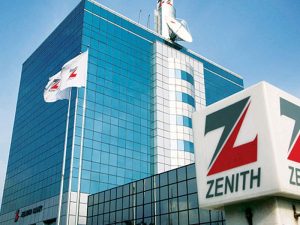 Zenith Bank Plc, Nigeria’s tier-1 bank, has announced that it plans to intensify effort in the area of retail banking this 2019, by lending more to SMEs and households; albeit at affordable interest rates too.
Zenith Bank Plc, Nigeria’s tier-1 bank, has announced that it plans to intensify effort in the area of retail banking this 2019, by lending more to SMEs and households; albeit at affordable interest rates too.
Mr. Peter Amangbo, the Bank’s Chief Executive Officer, who made the disclosure recently in Lagos, emphasized that the bank is really determined to increase in its loan book in 2019.
Amangbo acknowledged that the Nigerian banking industry witnessed a slowdown in loan growth last year, a situation that has been forecast to reoccur in 2019.
‘‘But the bank is trying to avoid being affected. And one of the ways it plans to do this is by lending to the low and middle-income people and businesses.
“We just talked about the loan volume going down in the industry but we are now looking at other areas. If the big ones are not taking loans you won’t fold your hands because those deposits that you are holding, the deposits can even sink a bank.
“So we are looking for other outlets. We are developing our retail end of the market and we are being very aggressive about that. We believe that is an area with a lot of potential. We are looking at individuals, households, small businesses. We are reaching out to them with credit facilities, whether to pay school fees or to meet some obligations pending payment of their salaries or whether to develop their small businesses.”
The CEO of Zenith Bank Plc also noted that the move would be good for the targeted market and the economy at large.
But most importantly, it is a good move for the leading financial services provider, which is making efforts to change its perception as an elitist bank.
Recall, Zenith Bank is not the only bank that has expressed demonstrated interest in small loans to households and SMEs. Just recently, First Bank of Nigeria Limited rolled out its wire array of services for schools, which basically provides credit facilities to schools and parents.
Zenith Bank Plc is one of Nigeria’s most profitable banks. As we reported, the company made the most profit in the Nigerian banking sector as at Q3 2018
 Startrend International Magazine For Your Latest News And Entertainment Gists
Startrend International Magazine For Your Latest News And Entertainment Gists





